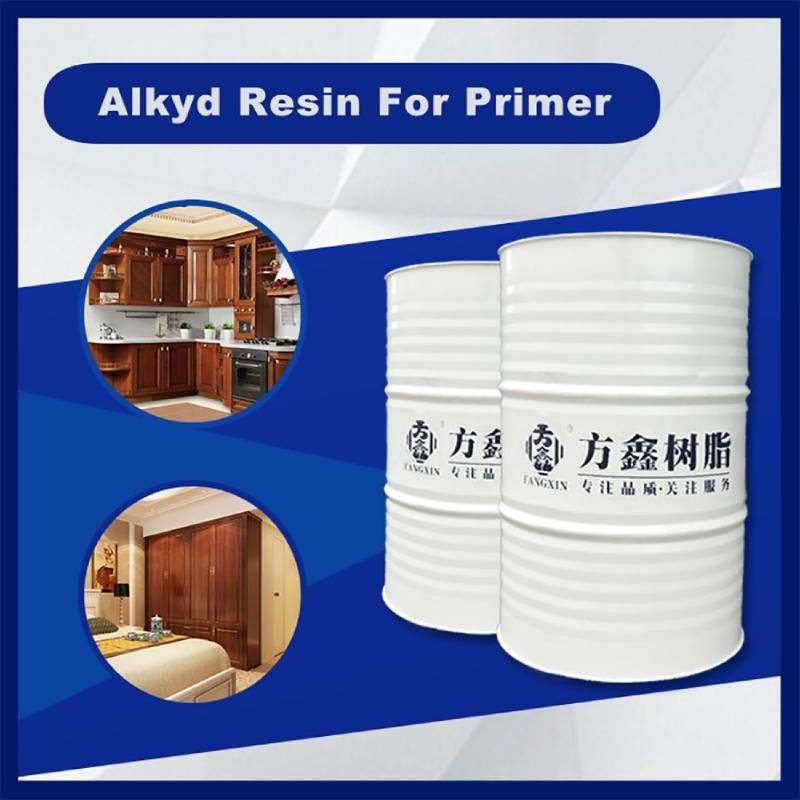Alkyd Resins: Versatile Players in the Coatings Industry

In the vast landscape of coating materials, alkyd resins have stood the test of time as a cornerstone of innovation and reliability. Derived from the condensation reaction of polyols, polybasic acids, and fatty acids (or oils), these thermosetting polymers have earned their reputation as "versatile players" in the coatings industry. Their unique blend of adaptability, cost-effectiveness, and performance across diverse applications from architectural paints to industrial finishes makes them indispensable in both traditional and cutting-edge coating formulations.
The Chemical Versatility of Alkyd Resins
At the heart of alkyd resins’ versatility lies their modular chemical structure. By adjusting the ratio of key components—such as glycerol (a polyol), phthalic anhydride (a polybasic acid), and drying oils like linseed or soybean oil—manufacturers can tailor alkyd resins to meet specific performance requirements. This flexibility allows for fine-tuning of properties such as drying time, hardness, gloss, and chemical resistance, making them suitable for an array of coating needs.
For example, short-oil alkyds, formulated with a lower proportion of fatty acids, dry quickly and form hard, glossy films—ideal for decorative coatings like furniture paints. Medium-oil alkyds strike a balance between flexibility and durability, finding use in interior wall paints and general-purpose primers. Long-oil alkyds, rich in fatty acids, produce flexible, slow-drying films that excel in exterior coatings, where resistance to weathering and expansion/contraction is critical.
Applications Across Coating Segments
1. Architectural Coatings
Alkyd resins are a staple in architectural coatings, where their ability to deliver both aesthetic appeal and durability shines. Interior wall paints formulated with alkyds offer vibrant color retention and a smooth, washable finish, while exterior alkyd-based paints resist fading from UV exposure and cracking in temperature fluctuations. Their compatibility with pigments also allows for a wide range of color options, making them a favorite among homeowners and contractors alike.
2. Industrial and Protective Coatings
In industrial settings, alkyd resins play a vital role in protective coatings for metal substrates. They form a tough barrier against corrosion, moisture, and abrasion, extending the lifespan of machinery, pipelines, and structural steel. Alkyd-based primers, in particular, are valued for their adhesion to metal surfaces, providing a strong foundation for subsequent topcoats. Their relatively low cost compared to epoxy or polyurethane resins makes them a cost-effective choice for large-scale industrial projects.
3. Automotive and Refinish Coatings
While modern automotive OEM coatings have shifted toward water-based or high-solids systems, alkyd resins remain relevant in refinish applications. Their fast-drying variants enable quick touch-ups and repairs, while their ability to produce a high-gloss finish matches the aesthetic demands of automotive surfaces. Alkyds also adhere well to existing paint layers, reducing the need for extensive surface preparation—a key advantage in collision repair shops.
4. Decorative and Specialty Coatings
From wood stains and varnishes to artistic paints, alkyd resins enhance the performance of decorative coatings. In wood finishes, they penetrate deeply into the grain, highlighting natural patterns while providing scratch resistance. Artists appreciate alkyd-based paints for their slow drying time, which allows for blending and layering, as well as their rich pigment load, which delivers vivid colors.
Advantages Driving Their Popularity
Alkyd resins’ enduring presence in the coatings industry stems from several key advantages:
· Cost-Effectiveness: Compared to high-performance resins like epoxies or fluoropolymers, alkyds are more affordable, making them accessible for budget-conscious applications.
· Ease of Application: They can be applied via brush, roller, or spray, with good flow and leveling properties that minimize visible brush marks or streaks.
· Compatibility: Alkyds blend well with other resins, solvents, and additives, enabling formulators to create hybrid coatings that combine the best properties of multiple materials (e.g., alkyd-urethane blends for enhanced durability).
· Renewable Content: Many alkyds incorporate plant-based oils (e.g., soybean or castor oil), aligning with growing demand for sustainable bio-based coating solutions.
Addressing Challenges and Evolving Trends
While alkyd resins offer numerous benefits, they face challenges in an industry increasingly focused on sustainability and low-VOC (volatile organic compound) formulations. Traditional solvent-based alkyds release VOCs during drying, contributing to air pollution. However, innovations such as water-based alkyds and high-solids formulations have mitigated this issue, reducing environmental impact while retaining performance.
Another challenge is their relatively lower chemical resistance compared to epoxy or polyester resins, limiting their use in highly corrosive environments. Yet, advancements in modified alkyds—such as those cross-linked with isocyanates or acrylics have improved their resistance to chemicals, fuels, and solvents, expanding their application scope.
Conclusion
Alkyd resins have rightfully earned their title as versatile players in the coatings industry. Their adaptability, cost-effectiveness, and broad performance range make them indispensable across architectural, industrial, automotive, and decorative applications. As the industry evolves toward sustainability, alkyds continue to innovate—proving that even a well-established material can remain at the forefront of coating technology. Whether in a homeowner’s living room, a factory floor, or a restored vintage car, alkyd resins quietly deliver the performance and reliability that define modern coatings.



Comments
Post a Comment